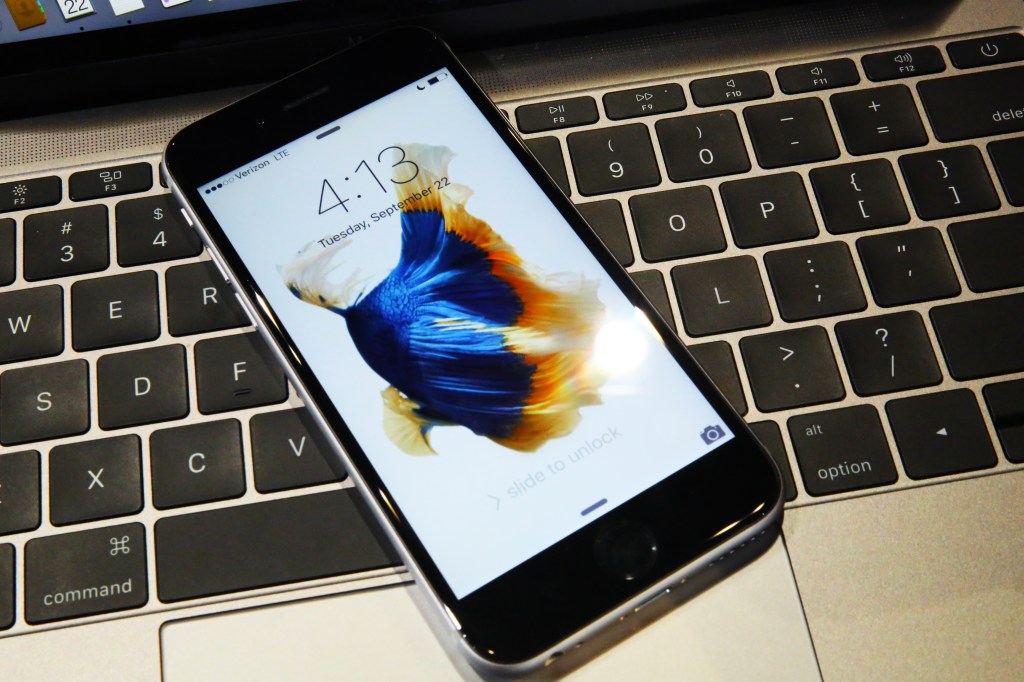Apple has addressed the spate of chatter about differences in performance between A9 chips used in its new iPhone 6s and 6s Plus. We’ve known for a while that some A9 chips were produced by TSMC and others by Samsung, a longtime Apple silicon partner.
Recently, people have been pushing and prodding at devices using both chips, coming up with numbers that point to theoretical 50-minute differences in battery life.
In a statement to TechCrunch, Apple said that its own testing and data gathered from its customers after a few weeks with the device show that the actual battery life of both devices varies just 2-3%. That’s far, far too low to be noticeable in real-world usage.
With the Apple-designed A9 chip in your iPhone 6s or iPhone 6s Plus, you are getting the most advanced smartphone chip in the world. Every chip we ship meets Apple’s highest standards for providing incredible performance and deliver great battery life, regardless of iPhone 6s capacity, color, or model.
Certain manufactured lab tests which run the processors with a continuous heavy workload until the battery depletes are not representative of real-world usage, since they spend an unrealistic amount of time at the highest CPU performance state. It’s a misleading way to measure real-world battery life. Our testing and customer data show the actual battery life of the iPhone 6s and iPhone 6s Plus, even taking into account variable component differences, vary within just 2-3% of each other.
Though there have been a bunch of articles and videos about how much power one chip or the other uses, the tests have largely been what Apple calls ‘manufactured’. Basically, they are unrealistic machine-driven tests that do not and can not reflect real-world usage.
This is one reason why I only lightly rely on benchmarks in my reviews and try not to use unrealistic ‘pristine’ iOS installs in my own testing.
You know that opt-in dialog that asks if you’d like to share diagnostic info with Apple that you see when you install iOS? This real-world (anonymized) data comes from those customers. They’re seeing exactly how people are actually using their iPhones with their own apps — not how benchmarks power-drain them by running the CPUs at peak for sustained periods; something that is unlikely to happen in real-world situations.
The 2-3% difference Apple is saying it sees between the battery life of the two processors is well within its manufacturing tolerances for any device, even two iPhones with the same exact processor. In other words, your iPhone and someone else’s iPhone with the same guts likely vary as much as 3%, regardless of who made them.
Basically, if you can tell the difference in real-world usage between the two processors, you should take a Voigt-Kampff test.
Whether you, personally, are offended that your device is on the higher end of that tolerance is not for me to say. Doesn’t bother me, but it could bother you — but I would probably advise you not to let it.
Apple would not comment on why there were two different manufacturers for the A9 chips, but I can probably hazard a guess. For a start, couple the fact that the iPhone 6s and 6s Plus sold record numbers, but still remain in stock (in some sizes) in many stores with the fact that China was a day-one rollout this year. This points to higher production volumes than ever before, and likely a shortage of foundry/chip manufacturing facilities from a single vendor.
Timothy Arcuri of Cowen and Company put out a report on the different A9 manufacturers, noting that it puts Apple in a position of strength going into the A10.
In this case, we believe that AAPL had planned to use Samsung for the initial wave of A9 builds, but also developed the TSMC solution as insurance against yield and allocation issues as it is the first [Apple] processor on FinFET. Given a host of issues including big differences in yields, AAPL was prepared to come to TSMC for more capacity allocation, if needed.
…
For AAPL, once yield issues are worked out, it will be in a great position to exert maximum pressure on each foundry in future capacity contracting. Barring the foundries pushing back (e.g., Samsung maybe bows out on A10?), this seems likely to continue going forward – especially since [Intel] desperately wants the [Apple] foundry business. This could open a window. With 10nm not available in time for the A10 launch, [Intel’s] 14nm offers a meaningful improvement in performance and power consumption over the TSMC and Samsung 16nm/14nm nodes as it uses a next-generation FinFET.
Splitting its orders between two vendors likely makes sense for Apple for other reasons as well. It could, for instance, be dipping its extremities further into the TSMC waters when it comes to producing chips . If the TSMC chips are performing at about the same level as the Samsung chips (or even a bit better in some metrics), that’s a good thing for Apple because it reduces their reliance on Samsung, a (parent) company with which it competes when it comes to the end product that the Samsung silicon powers.
The big takeaway here shouldn’t be that there are a couple of percentage points of difference between the two bits of silicon, but that Apple has kept up with demand for the first time in forever — and that it is setting the stage for what could allow it more control over its chip design with less conflict.
Article updated to add context from analyst note.































Comment